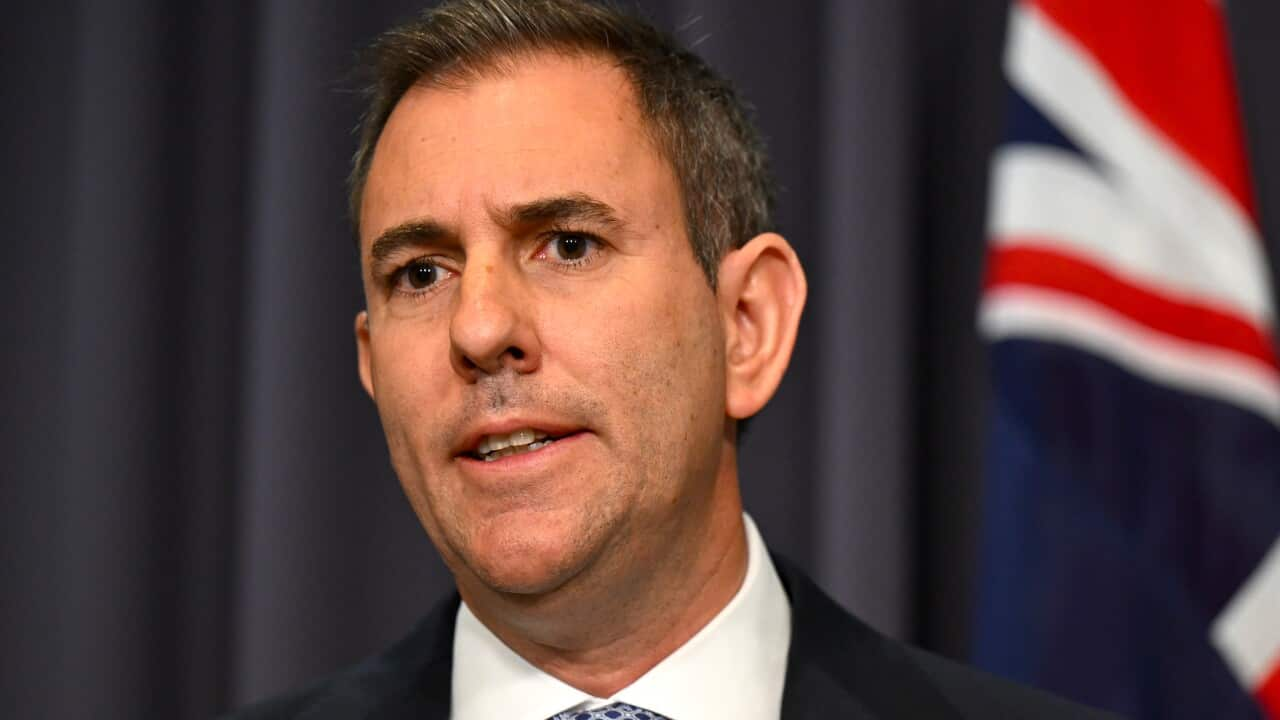Key Points
- Donald Trump has warned countries can expect 50 per cent tariffs and 200 per cent tariffs on pharmaceuticals.
- Treasurer Jim Chalmers called the developments "very concerning" on Wednesday morning.
- Chalmers said Australia's Pharmaceutical Benefits Scheme is not something Australia would "trade away".
Treasurer Jim Chalmers says the federal government is "urgently seeking" clarity on whether Australia will be hit by the United States' new pharmaceutical and copper tariffs.
Early Wednesday morning AEST, US President Donald Trump told his cabinet that countries can expect 50 per cent tariffs on copper as soon as late July as part of his larger trade blitz.
He also flagged that the US would soon announce a "very high rate, like 200 per cent" on pharmaceuticals, but would allow manufacturers time to relocate their operations to the US first.
"We're going to give people about a year, a year and a half to come in, and after that, they're going to be tariffed," Trump said.
Chalmers said the developments around pharmaceuticals in particular were "very concerning", but noted the US accounts for only 1 per cent of Australia's copper exports.
"Our pharmaceuticals industry is much more exposed to the US market, and that's why we're seeking, urgently seeking, some more detail on what's been announced," he told ABC's RN Breakfast on Wednesday morning.
"I want to make it really clear once again, as we have on a number of occasions before, our Pharmaceutical Benefits Scheme is not something that we're willing to trade away or do deals on. That won't change."
In 2024, Australia exported roughly $2.1 billion of medicinal and pharmaceutical products to the United States, Australian Bureau of Statistics data shows.
If the US were to put tariffs on medicinal exports, this could make Australian drugs more expensive.
Driving down demand could also force manufacturers to move overseas, where the costs of operations are cheaper.

For months, the US pharmaceutical industry has been pressuring Trump to add Australian and other Pharmaceutical Benefits Scheme (PBS) manufacturers to the tariff list, complaining it was "damaging pricing policies" and threatening billions in lost sales.
As part of its election platform, Labor committed to passing legislation that would make the maximum cost of prescription medicine covered by the PBS $25.
Under the PBS, the government negotiates prices directly with suppliers to make them cheaper for Australians.
Prime Minister Anthony Albanese and other Labor frontbenchers, including Health Minister Mark Butler, have repeatedly vowed that the PBS "is not for sale".
PM under further pressure to seek exemptions
Albanese has faced criticism from the Opposition about his inability to secure carve-outs from President Trump's Liberation Day tariff regime.
Australia is subject to a 50 per cent tariff on steel and aluminium and a baseline 10 per cent on other goods, considerably lower than other countries.
After extending the 90-day deadline for reciprocal tariffs to 1 August, Trump is expected to issue letters to over a dozen nations about their new tariff rates in coming days, with some receiving baseline tariffs as high as 40 per cent.
So far, only the United Kingdom and Vietnam have secured deals with the Trump administration, although goods from the latter will still be subject to 20 per cent duties.

The federal government has been consistent in its response, urging all tariffs to be dropped as it emphasises the Australia-US free trade agreement in place since 2005.
Nationals leader David Littleproud said Albanese needed to act with more urgency, suggesting he fly to the United States to secure a deal.
"We have a case like the UK had, that they were able to get a carve out," he told Sky News on Wednesday.
"But the prime minister doesn't seem to understand the importance and urgency of it.
"And I just think that the prime minister is letting Australians down, he's letting Australian jobs down."
For the latest from SBS News, download our app and subscribe to our newsletter.

